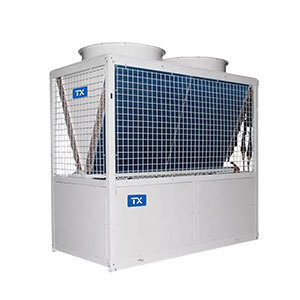Understanding Air Cooled Modular Chillers: Essential Insights for Industrial Applications

Air cooled modular chillers are crucial components in modern industrial cooling systems, designed to provide efficient temperature control for various applications. These chillers operate by utilizing air as a cooling medium, avoiding the need for water sources, which can be advantageous in many scenarios, especially where water conservation is a priority.
One of the standout features of air cooled modular chillers is their modular design, allowing for scalability and flexibility. This means that businesses can configure their cooling systems to meet specific demands without over-investing in capacity that may not be needed. In industrial settings, this adaptability is vital, as production requirements can change significantly based on seasons, market demands, or operational shifts.
The operational principle of an air cooled modular chiller involves a refrigerant cycle that extracts heat from a process or environment and dispels it into the atmosphere. The process starts with the refrigerant absorbing heat in the evaporator, where it transforms from a liquid to a gas. This gas is then compressed, which raises its temperature and pressure before it travels to the condenser. In the condenser, heat is released into the air, allowing the refrigerant to return to a liquid state and complete the cycle.
One of the primary benefits of using air cooled modular chillers is their energy efficiency. They can be equipped with advanced features such as variable speed drives and intelligent control systems that optimize performance based on real-time conditions. This capability not only reduces energy consumption but also lowers operational costs over time.
Moreover, air cooled modular chillers are easier to maintain compared to water-cooled systems, as they do not require extensive water treatment processes or cooling towers. This simplicity can lead to reduced downtime and lower maintenance costs, which are critical factors for many businesses aiming to enhance productivity.
Furthermore, the environmental impact should not be overlooked. With growing concerns about sustainability, air cooled modular chillers are often designed to meet stringent environmental regulations, ensuring that they operate within eco-friendly parameters.
In conclusion, air cooled modular chillers are an excellent solution for industries looking to improve their cooling efficiency while enjoying the benefits of modularity and reduced maintenance. Understanding their operational principles and advantages can help businesses make informed decisions about their cooling strategies, ultimately leading to enhanced productivity and sustainability in their operations. By choosing the right air cooled modular chiller, companies can significantly boost their operational efficiency and contribute to environmental conservation.
One of the standout features of air cooled modular chillers is their modular design, allowing for scalability and flexibility. This means that businesses can configure their cooling systems to meet specific demands without over-investing in capacity that may not be needed. In industrial settings, this adaptability is vital, as production requirements can change significantly based on seasons, market demands, or operational shifts.
The operational principle of an air cooled modular chiller involves a refrigerant cycle that extracts heat from a process or environment and dispels it into the atmosphere. The process starts with the refrigerant absorbing heat in the evaporator, where it transforms from a liquid to a gas. This gas is then compressed, which raises its temperature and pressure before it travels to the condenser. In the condenser, heat is released into the air, allowing the refrigerant to return to a liquid state and complete the cycle.
One of the primary benefits of using air cooled modular chillers is their energy efficiency. They can be equipped with advanced features such as variable speed drives and intelligent control systems that optimize performance based on real-time conditions. This capability not only reduces energy consumption but also lowers operational costs over time.
Moreover, air cooled modular chillers are easier to maintain compared to water-cooled systems, as they do not require extensive water treatment processes or cooling towers. This simplicity can lead to reduced downtime and lower maintenance costs, which are critical factors for many businesses aiming to enhance productivity.
Furthermore, the environmental impact should not be overlooked. With growing concerns about sustainability, air cooled modular chillers are often designed to meet stringent environmental regulations, ensuring that they operate within eco-friendly parameters.
In conclusion, air cooled modular chillers are an excellent solution for industries looking to improve their cooling efficiency while enjoying the benefits of modularity and reduced maintenance. Understanding their operational principles and advantages can help businesses make informed decisions about their cooling strategies, ultimately leading to enhanced productivity and sustainability in their operations. By choosing the right air cooled modular chiller, companies can significantly boost their operational efficiency and contribute to environmental conservation.

